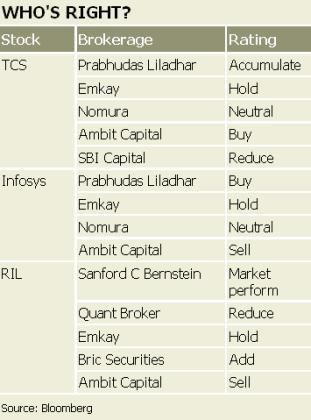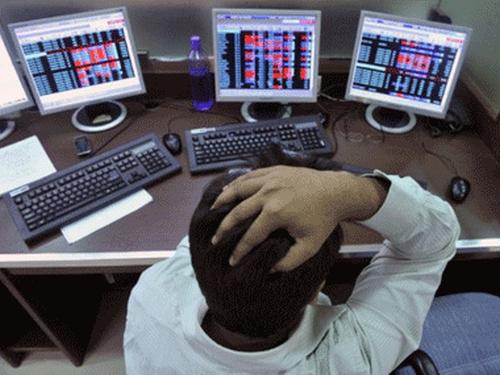
Aggressive analysts take a toll on even the best of companies. Often, this leaves the investor confused. It is, therefore, hardly surprising company managements rush into a damage-control mode on such occasions.
For instance, in July, when Macquarie's report on Housing Development Finance Corporation (HDFC) alleged its accounting standards were aggressive and the company was managing growth in earnings, managing director Keki Mistry aggressively countered the report.
Other companies such as Reliance Industries, Reliance Communications, Kingfisher Airlines, DLF and Biocon have also been hit hard by harsh research reports - some perhaps deservingly, others possibly not.
Experts say direct investors in stock shouldn't be swayed by inflammatory headers of reports and take investment decisions in a hurry. Veritas' report on DLF called the company 'The crumbling edifice', while Macquarie's report on HDFC was titled 'The Last Bastion Falls'.
...

Before one decides to buy or sell, one should watch the stock movement for a few days. If the price doesn't fall sharply, there is a strong chance the market has already discounted the negatives.
However, if there is a sharp fall, one might decide to exit (if the price of the share is still above the acquisition cost). If the share price has fallen to a level below the acquisition cost, one has to decide whether to exit at a loss, or wait for things to improve.
Rahul Rege, business head (retail), Emkay Global Financial Services, says, "Investors need to understand it doesn't make sense to jump to a conclusion based on just one report or a view.
By owning a share, you are a co-promoter. Does it suit a promoter to start and shut business because one person doesn't believe in his business model?
...

Experts say sometimes, it is possible there's a conspiracy involved; there could be vested interests of the report's author or the company.
According to the head of a brokerage, sometimes, harsh reports are released if the investing banking arm doesn't get a particular mandate. So, a little fact finding is necessary.
Piyush Garg, chief investment officer of ICICI Securities, isn't very comfortable with the oversupply of information.
"One cannot tell which piece of information is vital and which is not," he says. As a result, it becomes important to sift. For that, serious investors would have to be responsible for their money. How?
...

"Do your own homework, instead of looking for a scapegoat to blame," says investment expert Gul Tekchandani.
He adds though it is the analysts' job to bring out monthly or quarterly reports, investors, especially long-term ones, should carry out their research.
A major hurdle is investors take decisions based on the price of a stock. Then, they get emotional and cry wolf.
"That is a sure way to lose money. You can't analyse or understand a price level. You need to study the business," Tekchandani says.
While information comes through a secondary source like research analysts, companies, the government, etc, one has to be a direct stock investor to have knowledge on the company, the sector, etc.
If you are scouting for a simpler option, buy mutual funds and leave the decision making to experts.